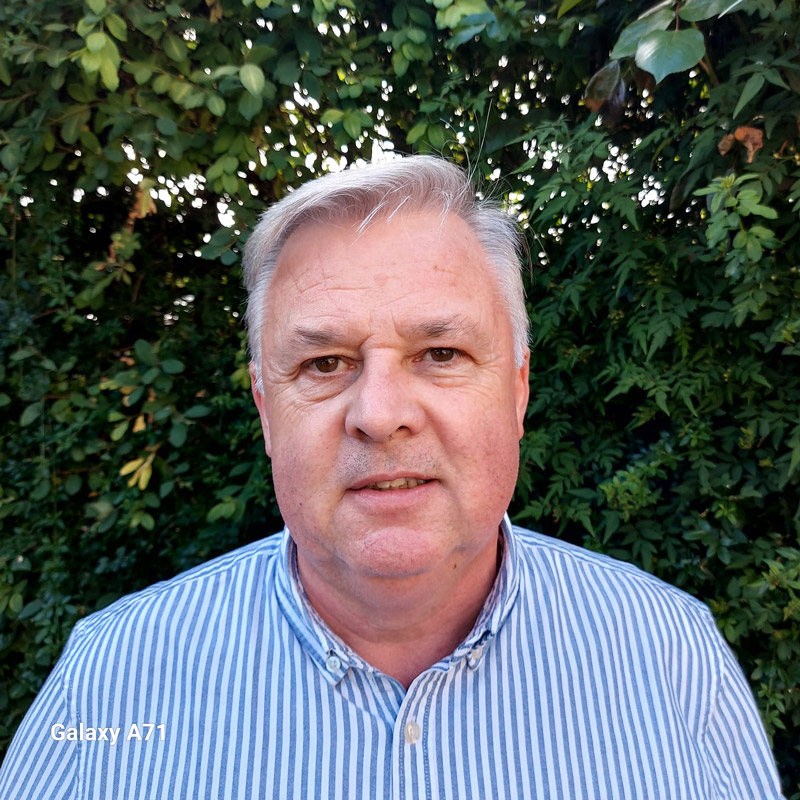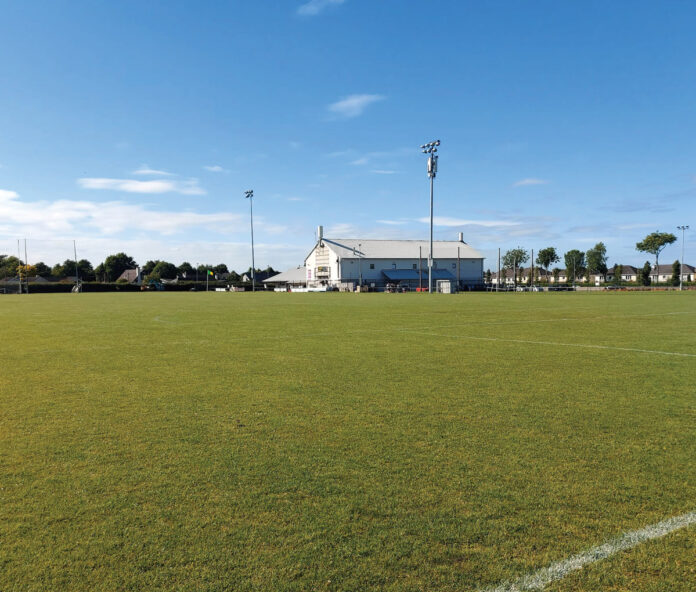Over the past five years, Kilcock GAA in Co Kildare has implemented an ambitious development plan in an effort to improve its facilities.
As part of this plan, two high specification sand-based pitches, playable all year round, were constructed, increasing the club’s number of pitches to four. With approximately 40 teams in the club across all the GAA codes, these pitches are in constant demand, and a special sub-committee was set up to manage their use.
In conjunction with the GAA, the club also set up a Green Club Committee to focus on five areas of management, namely energy, water, waste, transport and environmental sustainability.
In the context of environmental sustainability, the club began exploring alternative methods for maintaining its pitches, aiming to move away from the use of chemical fertilisers and pesticides.
With this in mind, Kilcock GAA approached Probio Carbon Ltd to explore the use of organic products in maintaining the pitches at a high level. A plan to meet environmental and sustainability targets was devised, with Declan Gibbons of Laragh Sports Turf Ltd key to implementing this plan.
The inspiration for biochar is the terra preta de indio (Amazonian black earths) from pre-Columbian civilisations, which showed remarkable soil fertility
THE FERTILISING PLAN
In 2021, a grassland trial was conducted in Kildare to determine the benefits and rates of applying microbes, seaweed, liquified fish and chitin to increase grass yield. Results from these trials formed the basis of the plan devised for Kilcock GAA.
The fertilising plan involved the sequenced application of four products in various levels of concentration: a three-strain Irish Probiotic Mix (Probio Carbon Ltd), biochar (Arigna Biofuels Ltd), Liquid Fish (C-Bio Ltd), and seaweed (Beobio Teoranta Ltd).
All these products are organically registered and produced in Ireland by Irish companies.
PROBIOTIC MIX
In the first step, a microbial/probiotic mix of plant growth-promoting bacteria (PGPB) was sprayed on the grass to enhance root efficiency and to help the grass recover from the subsequent overlay of biochar and sand.
The addition of this mix gives plants a powerful natural boost. It increases the uptake of minerals; promotes growth; solubilises phosphate; modulates growth hormone levels; produces siderophores, which make iron available to the plant; increases systemic resistance to disease (including Fusarium, Rhizoctonia, Phythium, Botrytis and many more pathogens); and acts as a food source for both plants and beneficial fungi at cell death stage.
Phosphate-solubilising microbes in the probiotic mix produce phosphatase, an enzyme that makes ‘fixed’ organic phosphorous available to plants. Ireland’s fourth National Biodiversity Action Plan 2023-2030 highlights the need to support these microbes with plant diversity and biologically-friendly fertilisers such as seaweed.
BIOCHAR
Biochar is organic material (biomass or waste) subjected to high temperatures (pyrolysis) in an oxygen-free environment. The inspiration for biochar is the terra preta de indio (Amazonian black earths) from pre-Columbian civilisations, which showed remarkable soil fertility. In the 2019 EU fertiliser regulation, biochar, an organic fertiliser, was defined as a carbonaceous product obtained by the pyrolysis (thermal decomposition of materials at elevated temperatures) of organic materials.
After the spraying of the probiotic mix, biochar was applied to the two Kilcock GAA pitches as a once-off application. Biochar is promoted as a form of carbon sequestration and storage; for its potential benefits for bio-energy production (eg syngas, bio-oil and heat); for use in soils to enhance crop productivity; to reduce nitrate leaching through nitrate and phosphate capture; to absorb contaminants, such as arsenic and copper from soils; as an animal feed; for the reduction of odour and ammonia from slurry; and to reduce trace-gas emissions from soils (nitrous oxide and methane).
The sponge-like characteristics of biochar work in tandem with the probiotic organisms to trap nitrates in the soil. This results in less run-off, with the improved retention assisting the nitrification and de-nitrification processes.
The symbiosis between plant-fungi-bacteria in biochar ultimately leads to a reduced need for traditional pesticides and chemical fertilisers. From a climate perspective, applying biochar to soils can remove carbon dioxide from the atmosphere for long periods.
Because biochar converts garden and forestry waste into a useful by-product, and has done so for centuries, it also has applications for the waste management industry.
SEAWEED AND LIQUID FISH APPLICATION
As the summer progresses, the pitches will be fertilised with seaweed and liquid fish at a very low rate. The monthly application of these products during the growing season will have several benefits.
Liquid fish improves roots, nutrition and the quality of grass by supplying vitamins and minerals, while also producing phytohormones (chemicals produced by plants that regulate their growth) that act as bio-stimulants to encourage immunity to disease, healthy growth and colour. Seaweed can absorb as much CO2 as trees and hence can contribute to CO2
sequestration. The most important tissue for carbon sequestration is the root, and the use of seaweed encourages the healthy accumulation of microbial life around the root.
Also, seaweed as a foliar spray activates the plant’s own growth and protection systems to produce plant growth regulators, as well as phytohormones to protect from diseases and biomolecules to counteract biotic and abiotic stressors.
In acidic soils with a pH of less than 7, applied phosphorous rapidly forms relatively insoluble aluminium, iron or manganese phosphates. Adding water-soluble phosphorous to soils further inhibits growth (the phosphorous paradox) because between 80 to 90 per cent of it is not directly available to the grass. Phosphorous, the least mobile and least available of the essential elements, is often the limiting factor for plant growth. The key to making phosphorous available to the soil is microbial activity.
Our fertilising plan, including our phosphate solubilising microbes, when used as an alternative to chemical fertilisers, helps stimulate nitrogen fixing bacteria in the soil, boosting brix levels, crop yields and KPH in grain trials. Application of this organic fertiliser also helps establish healthy non-compacted soils.
To help maintain its pitches, Kilcock GAA Club has invested in a robotic mower which cuts each pitch three times a week. The pitches will continue to be monitored for a comparison of grass nutrient levels before and after this treatment plan. ✽
 DR KAREN O’HANLON is the founder of Probio Carbon Ltd. info@probiocarbon.ie, 087 981 6569, www.probiocarbon.ie.
DR KAREN O’HANLON is the founder of Probio Carbon Ltd. info@probiocarbon.ie, 087 981 6569, www.probiocarbon.ie.

PAUL NORRIS is a horticulturist who has worked in nursery and fruit production. He currently presents and manages training and education programmes.




